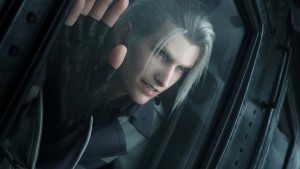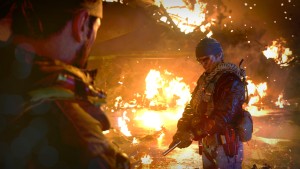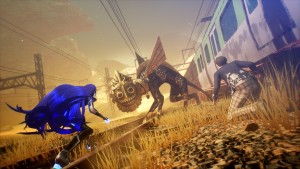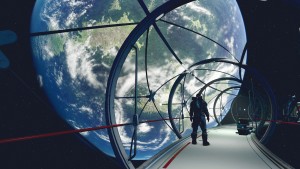Please support Game Informer. Print magazine subscriptions are less than $2 per issue
My Thoughts On That Dragon, Cancer
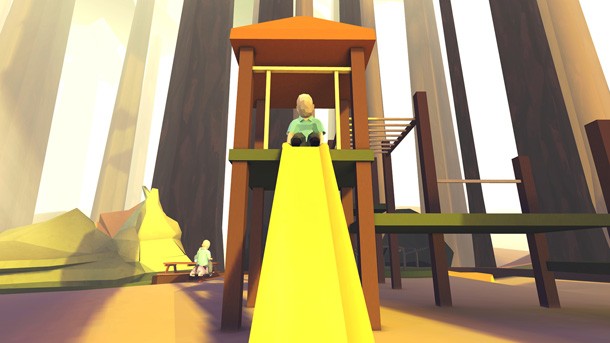
There are some things in life that you never want to go through, that you hope and pray you can be lucky enough to avoid experiencing firsthand. The Green family had no such luck. Amy and Ryan's son Joel was diagnosed with cancer when he was 12 months old, and battled the disease for four long years before dying at the age of five. That Dragon, Cancer takes players through the Greens' plight, and as Amy declares in one revelatory moment, "tragedy" is the perfect word for the experience – the only word. That Dragon, Cancer is an intensely challenging and emotional game that's virtually impossible to review, but still worth discussing.
I'm no stranger to reviewing experiences that stretch the boundaries of what we consider traditional games. Titles like The Stanley Parable and The Beginner's Guide aren't easily summed up by bullet points or a review score, but they are nonetheless easy to recommend as novel, unique, and entertaining experiences. That Dragon, Cancer is different. The game presents players with 14 short vignettes designed to convey moments in the family's life, from playing together at a park to the heartbreaking effects of Joel's treatments. Players click their way through environments, activating messages and animations, while Amy and Ryan describe their hopes, fears, and more than anything, the love they have for their son. That Dragon, Cancer is less a narrative as it is a collection of the family's memories that you can interact with, for better and for worse. How do you put a score on that?

Much of That Dragon, Cancer deals with Amy and Ryan attempting to cope with their son's illness; it doesn't take long to realize that the game itself is a coping mechanism as well. The chapters you spend interacting with Joel are the strongest, presenting distinct yet timeless moments that leave the indelible impression of a child who loved to laugh. That Dragon, Cancer is rife with symbolism, most of which plays out in thoughtful and interesting ways, such as getting lost in a sea that blends into a bed of stars, and ominous black trees that take on the twisted shape of mutated cancer cells.
Throughout the experience, you're forced to grapple with the ruthless inevitability of Joel's disease. That Dragon, Cancer feels like Amy and Ryan's attempt to work through the pain, and while the symbolism helps process the tragedy, there are no easy answers. In one chapter, Ryan questions the religious faith of his wife, stating that he hopes things will be okay, but that he doesn't know things will be okay. The struggle to make sense of Joel's disease and to make peace with it is omnipresent yet impossible to achieve. In the end, the creators turn to their religion for meaning – whether that provides you with the same comfort depends on your personal beliefs.

I had a hard time playing That Dragon, Cancer, and while it left me more appreciative of my own health and family, I don't know if or who I would recommend the game to. The experience is both depressing and at times uplifting; it warms as it rends. Despite the final message of hope, it's impossible to make peace with a disease that has taken so many, and being forced to confront those feelings takes its toll. All I can say is That Dragon, Cancer is a fitting tribute to a lost child; a way for the Greens to remember and relive their precious time with Joel. That's no small thing to be grateful for.
To learn more about That Dragon, Cancer read our feature on empathy games, Demon Slayers: Gaming Tackles Real Issues.





